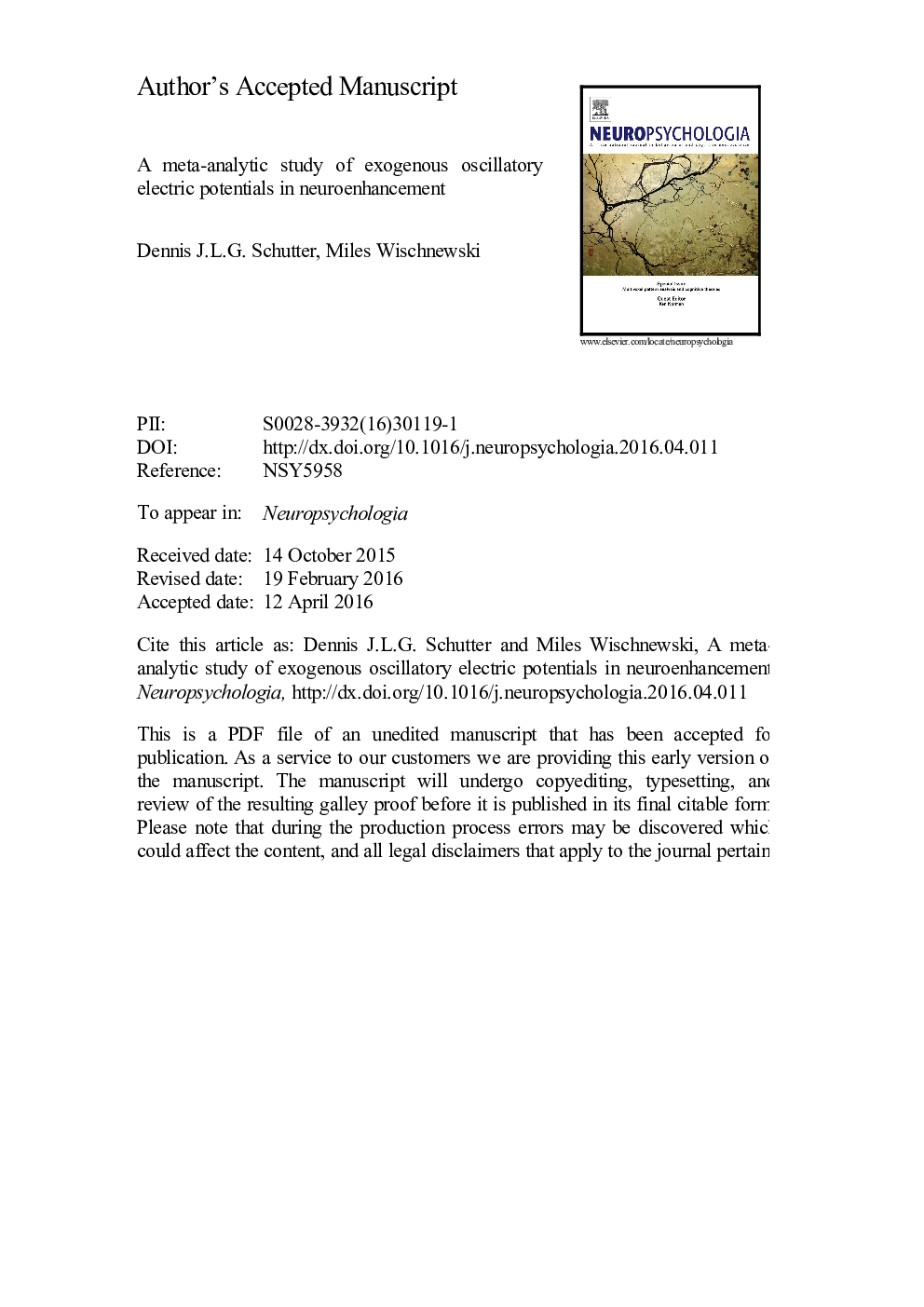| Article ID | Journal | Published Year | Pages | File Type |
|---|---|---|---|---|
| 7318975 | Neuropsychologia | 2016 | 32 Pages |
Abstract
The assumption that transcranial alternating current stimulation (tACS) enhances perceptual and cognitive ability in healthy volunteers by exposing the brain to exogenous oscillatory electric fields is increasingly finding its way into society and commercial parties. The aim of the present study is to quantify the effects of exogenous oscillatory electric field potentials on neuroenhancement in healthy volunteers. The meta-analysis included fifty-one sham controlled experiments that investigated the effects of tACS on perception and cognitive performance. Results from random effects modelling of the cumulative effect size showed small, but robust perceptual and cognitive enhancement in healthy participants to weak exogenous oscillatory electric field potentials. Analyses of tACS parameters indicate that simultaneous stimulation of the anterior and posterior locations of the scalp at >1Â mA intensity currently has the highest probability of increasing performance. However, technical and methodological issues currently limit the applicability of tACS in neuroenhancement. Additional research is needed to further evaluate the potential of tACS in perception and cognitive ability, and to establish the contexts and parameters under which tACS is effective.
Keywords
Related Topics
Life Sciences
Neuroscience
Behavioral Neuroscience
Authors
Dennis J.L.G. Schutter, Miles Wischnewski,
